|
Books Should Be Free Loyal Books Free Public Domain Audiobooks & eBook Downloads |
|
|
Books Should Be Free Loyal Books Free Public Domain Audiobooks & eBook Downloads |
|
History Books |
|---|
|
Book type:
Sort by:
View by:
|
By: Elbridge Streeter Brooks (1846-1902) | |
|---|---|
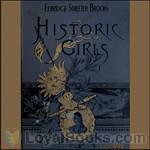 Historic Girls
Historic Girls
Twelve short stories of real girls who have influenced the history of their times. | |
By: Thomas Wallace Knox | |
|---|---|
 Overland through Asia
Overland through Asia
OVERLAND THROUGH ASIA: PICTURES OF SIBERIAN, CHINESE, AND TARTAR LIFEBy THOMAS W. KNOX. PREFACE. Fourteen years ago Major Perry McD. Collins traversed Northern Asia, and wrote an account, of his journey, entitled A Voyage Down the Amoor. With the exception of that volume no other work on this little known region has appeared from the pen of an American writer. In view of this fact, the author of Overland Through Asia indulges the hope that his book will not be considered a superfluous addition to the literature of his country... | |
By: William Allison Sweeney | |
|---|---|
 History of the American Negro
History of the American Negro
History Of The American Negro In The Great World WarHis Splendid Record In The Battle Zones Of Europe By W. Allison Sweeney Contributing Editor Of The Chicago Defender. CHAPTER I. SPIRITUAL EMANCIPATION OF NATIONS. The march of civilization is attended by strange influences. Providence which directs the advancement of mankind, moves in such mysterious ways that none can sense its design or reason out its import. Frequently the forces of evil are turned to account in defeating their own objects. Great tragedies, cruel wars, cataclysms of woe, have acted as enlightening and refining agents... | |
By: Clara Dillingham Pierson (1868-1952) | |
|---|---|
 Among the Farmyard People
Among the Farmyard People
A wonderful children's book filled with engaging stories about various farmyard animals. Each book ending with a moral which gently encourages children towards better behaviour and attitudes. | |
By: Alexander Aaronsohn (1888-1948) | |
|---|---|
 With the Turks in Palestine
With the Turks in Palestine
While Belgium is bleeding and hoping, while Poland suffers and dreams of liberation, while Serbia is waiting for redemption, there is a little country the soul of which is torn to pieces—a little country that is so remote, so remote that her ardent sighs cannot be heard.It is the country of perpetual sacrifice, the country that saw Abraham build the altar upon which he was ready to immolate his only son, the country that Moses saw from a distance, stretching in beauty and loveliness,—a land of promise never to be attained,—the country that gave the world its symbols of soul and spirit... | |
By: Lucy Aikin (1781-1864) | |
|---|---|
 Memoirs of the Court of Queen Elizabeth, Volumes I & II
Memoirs of the Court of Queen Elizabeth, Volumes I & II
Memoirs of Queen Elizabeth from a variety of sources within the monarch's court, compiled and interpreted by Lucy Aikin. | |
By: Rev. James MacCaffrey (1875-1935) | |
|---|---|
 History of the Catholic Church from the Renaissance to the French Revolution: Volume 1
History of the Catholic Church from the Renaissance to the French Revolution: Volume 1
This first volume of a two volume set traces the trials and triumphs of the Catholic Church during the period before the reformation up to the 19th century. The origins, causes and developments of the various protestant sects that were the fruit of the reformation are studied in depth, as well as the men, schools of thought and movements within and without the Church that influenced this important time period in Church history. | |
By: Frances Trollope (1779-1863) | |
|---|---|
 Domestic Manners of the Americans
Domestic Manners of the Americans
Next to de Alexis de Tocquville's almost contemporary Democracy in America, Frances Trollope's work may be the most famous (or at least notorious) dissection of manners and morals of the United States. The work was a sensation on both sides of the Atlantic, and particularly in America, where Trollope was reviled as representing the worst of old world prejudices the new republic (though the criticism did nothing to hurt sales).Accompanied by a son and two daughters, Trollope lived in the United States... | |
By: James Brendan Connolly (1868-1957) | |
|---|---|
 The U-Boat Hunters
The U-Boat Hunters
The author takes the listener on a tour of various ships used in WW1. He discusses the boats and the seamen who occupy them and their encounters with the German U-boats. It is a collection of short stories, each one complete, about them all. The author was also an Olympic athlete; winning a bronze, silver and gold medal in the Athens Olympics of 1896 and a silver in the Paris games of 1900. | |
By: James Orton (1830-1877) | |
|---|---|
 The Andes and the Amazon
The Andes and the Amazon
This book, with the subtitle "Across the Continent of South America" describes the scientific expedion of 1867 to the equatorial Andes and the Amazon. The route was from Guayaquil to Quito, over the Cordillera, through the forest to Napo, and, finally, on the Rio Napo to Pebas on the Maranon. Besides this record, the expedition - under the auspices of the Smithsonian Institute - collected samples of rocks and plants, and numerous specimen of animals. The scientists also compiled a vocabulary of local languages and produced a new map of equatorial America... | |
By: Justin McCarthy (1830-1912) | |
|---|---|
 History of the Four Georges and of William IV, Volume 3
History of the Four Georges and of William IV, Volume 3
In Volume III of this series on the Hanoverian Kings, Justin McCarthy is joined by his son, Justin Hartly McCarthy, a liberal Irish MP like his father. Together they bring to life, poor stubborn George III, the outrageous radical, John Wilkes, the rebellious American Colonies, great-hearted Charles James Fox, the Gordon Riots which set London ablaze, Edmund Burke, Britain's problematic Indian policy, and the brave, enigmatic Younger Pitt, who faced national fears of the spread of revolution across the Channel from France and then confronted the imminent threat of invasion by the armies of Napoleon. | |
By: Ellen Churchill Semple | |
|---|---|
 Influences of Geographic Environment
Influences of Geographic Environment
INFLUENCES OF GEOGRAPHIC ENVIRONMENT ON THE BASIS OF RATZEL'S SYSTEM OF ANTHROPO-GEOGRAPHY BY ELLEN CHURCHILL SEMPLE PREFACE The present book, as originally planned over seven years ago, was to be a simplified paraphrase or restatement of the principles embodied in Friedrich Ratzel's _Anthropo-Geographie_. The German work is difficult reading even for Germans. To most English and American students of geographic environment it is a closed book, a treasure-house bolted and barred. Ratzel himself realized that any English form could not be a literal translation, but must be adapted to the Anglo-Celtic and especially to the Anglo-American mind... | |
By: Henry Festing Jones (1851-1928) | |
|---|---|
 Diversions in Sicily
Diversions in Sicily
Samuel Butler's biographer dedicates his urbane account of the culture and entertainments of rural Sicily to the unborn son of his guide to them. | |
By: Justus Hecker (1795-1850) | |
|---|---|
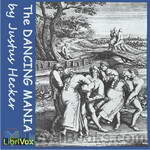 The Dancing Mania
The Dancing Mania
Numerous theories have been proposed for the causes of dancing mania, and it remains unclear whether it was a real illness or a social phenomenon. One of the most prominent theories is that victims suffered from ergot poisoning, which was known as St Anthony’s Fire in the Middle Ages. During floods and damp periods, ergots were able to grow and affect rye and other crops. Ergotism can cause hallucinations, but cannot account for the other strange behaviour most commonly identified with dancing mania... | |
By: Alice Turner Curtis (1863-??) | |
|---|---|
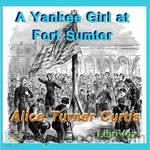 A Yankee Girl at Fort Sumter
A Yankee Girl at Fort Sumter
Sylvia Fulton is a ten-years-old girl from Boston who stayed in Charleston, South Carolina, before the opening of the civil war. She loves her new home, and her dear friends. However, political tensions are rising, and things start to change. Through these changes, Silvia gets to know the world better: from Estrella, her maid, she starts to understand what it is to be a slave, from her unjust teacher she learns that not all beautiful people are perfect, and from the messages she carries to Fort Sumter she learns what is the meaning of danger. However, this is a lovely book, written mostly for children. | |
 Little Maid of Province Town
Little Maid of Province Town
Plucky eight year old Anne Nelson, living in Provincetown on the tip of Cape Cod, is determined to bring the Revolutionary War to an end so that she can be reunited with her soldier father. Will she succeed in carrying an important message from Boston to Newburyport, warning the American troops to be prepared, or will she be caught by the English ships patrolling the harbor? | |
By: Nellie McClung (1873-1951) | |
|---|---|
 In Times Like These
In Times Like These
" Believing that the woman's claim to a common humanity is not an unreasonable one, and that the successful issue of such claim rests primarily upon the sense of fair play which people have or have not according to how they were born, and Therefore to men and women everywhere who love a fair deal, and are willing to give it to everyone, even women, this book is respectfully dedicated by the author." | |
By: Torquato Tasso (1544-1595) | |
|---|---|
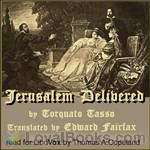 Jerusalem Delivered
Jerusalem Delivered
The First Crusade provides the backdrop for a rich tapestry of political machinations, military conflicts, martial rivalries, and love stories, some of which are complicated by differences in religion. The supernatural plays a major role in the action. Partly on this account, and partly because of the multilayered, intertwined plots, the poem met with considerable contemporary criticism, so Tasso revised it radically and published the revision under a new name, La Gerusalemme Conquistata, or "Jerusalem Conquered," which has remained virtually unread, a warning to authors who pay attention to the critics... | |
By: Cole Younger (1844-1916) | |
|---|---|
 Story of Cole Younger, by Himself
Story of Cole Younger, by Himself
Autobiography of Cole Younger, American Civil War veteran and member of the Jesse James gang. Cole Younger was a member of Quantrill's Raiders during the Civil War and along with his brother, Jim Younger and the James brothers, robbed banks and trains during the 1870's. | |
By: Lady Sarah Wilson (1865-1929) | |
|---|---|
 South African Memories
South African Memories
Lady Sarah Isabella Augusta Wilson was the aunt of Winston Spencer Churchill. In 1899 she became the first woman war correspondent when she was recruited to cover the Siege of Mafeking for the Daily Mail during the Boer War. She moved to Mafeking with her husband at the start of the war, where he was aide-de-camp to Colonel Robert Baden-Powell. Baden-Powell asked her to leave Mafeking for her own safety after the Boers threatened to storm the British garrison. This she duly did, and set off on a... | |
By: Julian Street | |
|---|---|
 American Adventures
American Adventures
AMERICAN ADVENTURES, A SECOND TRIP ABROAD AT HOMEBY JULIAN STREETCHAPTER IHad my companion and I never crossed the continent together, had we never gone abroad at home, I might have curbed my impatience at the beginning of our second voyage. But from the time we returned from our first journey, after having spent some months in trying, as some one put it, to discover America, I felt the gnawings of excited appetite. The vast sweep of the country continually suggested to me some great delectable repast:... | |
By: Mabel Bent (c.1847-1929) | |
|---|---|
 Southern Arabia
Southern Arabia
Southern Arabia recounts a threatening four-month journey into North Eastern Ethiopia by the Bents. These brave travelers were the first to travel without disguise in a region where Westerners had formerly been fortunate to escape with their lives. | |
By: Mary Seacole (1805-1881) | |
|---|---|
 Wonderful Adventures of Mrs. Seacole in Many Lands
Wonderful Adventures of Mrs. Seacole in Many Lands
I should have thought that no preface would have been required to introduce Mrs. Seacole to the British public, or to recommend a book which must, from the circumstances in which the subject of it was placed, be unique in literature. If singleness of heart, true charity, and Christian works; if trials and sufferings, dangers and perils, encountered boldly by a helpless woman on her errand of mercy in the camp and in the battle-field, can excite sympathy or move curiosity, Mary Seacole will have many friends and many readers... | |
By: Walter W. Bryant (1865-1923) | |
|---|---|
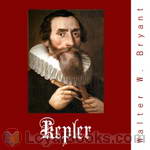 Kepler
Kepler
This biography of Johannes Kepler begins with an account of what the world of astronomy was like before his time, then proceeds to a look at his early years. Two chapters deal with his working relationship with Tycho Brahe. These are followed by a look at Kepler's laws and his last years. | |
By: Francis Andrew March (1863-1926) | |
|---|---|
 History of the World War
History of the World War
This is a popular narrative history of the world's greatest war. Written frankly from the viewpoint of the United States and the Allies, it visualizes the bloodiest and most destructive conflict of all the ages from its remote causes to its glorious conclusion and beneficent results.Two ideals have been before us in the preparation of this necessary work. These are simplicity and thoroughness. It is of no avail to describe the greatest of human events if the description is so confused that the reader loses interest... | |
By: Aubertine Woodward Moore (1841-1929) | |
|---|---|
 For Every Music Lover
For Every Music Lover
A series of essays for music lovers, covering many topics. From music appreciation, to violin and symphony, music education, to piano and, in fact, the very origins of music, there is sure to be something for everyone. | |
By: Edwin John Dingle | |
|---|---|
 Across China on Foot
Across China on Foot
ACROSS CHINA ON FOOTBy EDWIN JOHN DINGLEINTRODUCTORYThe scheme. Why I am walking across Interior China. Leaving Singapore. Ignorance of life and travel in China. The China for the Chinese cry. The New China and the determination of the Government. The voice of the people. The province of Yuen-nan and the forward movement. A prophecy. Impressions of Saigon. Comparison of French and English methods. At Hong-Kong. Cold sail up the Whang-poo. Disembarkation. Foreign population of Shanghai. Congestion in the city... | |
By: Ethel J. Rosenberg (1858-1930) | |
|---|---|
 A Brief Account of the Bahai Movement
A Brief Account of the Bahai Movement
“Many believe that we, in this century,” writes Ethel Rosenberg, “ are witnessing the dawn of a new spiritual epoch or era. A renewal of the Spirit is making itself felt in the Churches and in the religious and social life of all lands. This is in harmony with the teachings of the Bahais, and of their Great Leaders, now represented by Abdul Baha the ‘Servant of God,’ known to the outside world as Abbas Effendi. Once again, the Light is shining forth from that land which may indeed be called... | |
By: Edson L. Whitney (1861-) | |
|---|---|
 Four American Indians: King Philip, Pontiac, Tecumseh, Osceola
Four American Indians: King Philip, Pontiac, Tecumseh, Osceola
Four American Indians by Edson L. Whitney and Frances M. Perry, gives a short history of King Philip, Sachem of the Wampanoags; Pontiac, an Ottawan chief; Tecumseh, a Shawnee chief; and Osceola, a Seminole chief. Along with the history of each leader, insights on daily living among these different tribes is given. | |
By: A. H. U. Colquhoun (1861-1936) | |
|---|---|
 Chronicles of Canada Volume 28 - The Fathers of Confederation: A Chronicle of the Birth of the Dominion
Chronicles of Canada Volume 28 - The Fathers of Confederation: A Chronicle of the Birth of the Dominion
During and after the United States' War of Independence, Canada remained loyal to Great Britain. The upheavals of the 1830's and early 1840's led to a Popular Government and union of Upper and Lower Canada in 1841, but many still wanted confederation of the provinces into one centralized government. It would take over two decades for that to become a reality, "From Sea to Sea". This work chronicles the birth of the Dominion of Canada. | |
By: Sir Edward Shepherd Creasy (1812-1878) | |
|---|---|
 Fifteen Decisive Battles of the World
Fifteen Decisive Battles of the World
This work is Edward Creasy's best known fundamental work of history. It describes in detail 15 battles of world history, beginning with the Battle of Marathon of 490 BC and ending with the Battle of Waterloo of 1815. Each chapter is illustrated with rich historical detail and a timeline of events. | |
By: Henry M. Field (1822-1907) | |
|---|---|
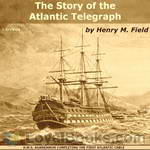 The Story of the Atlantic Telegraph
The Story of the Atlantic Telegraph
Cyrus W. Field had a dream: to link the Old World of Britain and Europe to that of the New World of North America by a telegraph cable stretching across the great Atlantic Ocean. It took him thirteen years, a lot of money, and many men and ships and cable to make it happen. He wanted to bring the world together and make it a smaller place; to forge alliances and achieve peace. This is his story. (Introduction by Alex C. Telander) | |